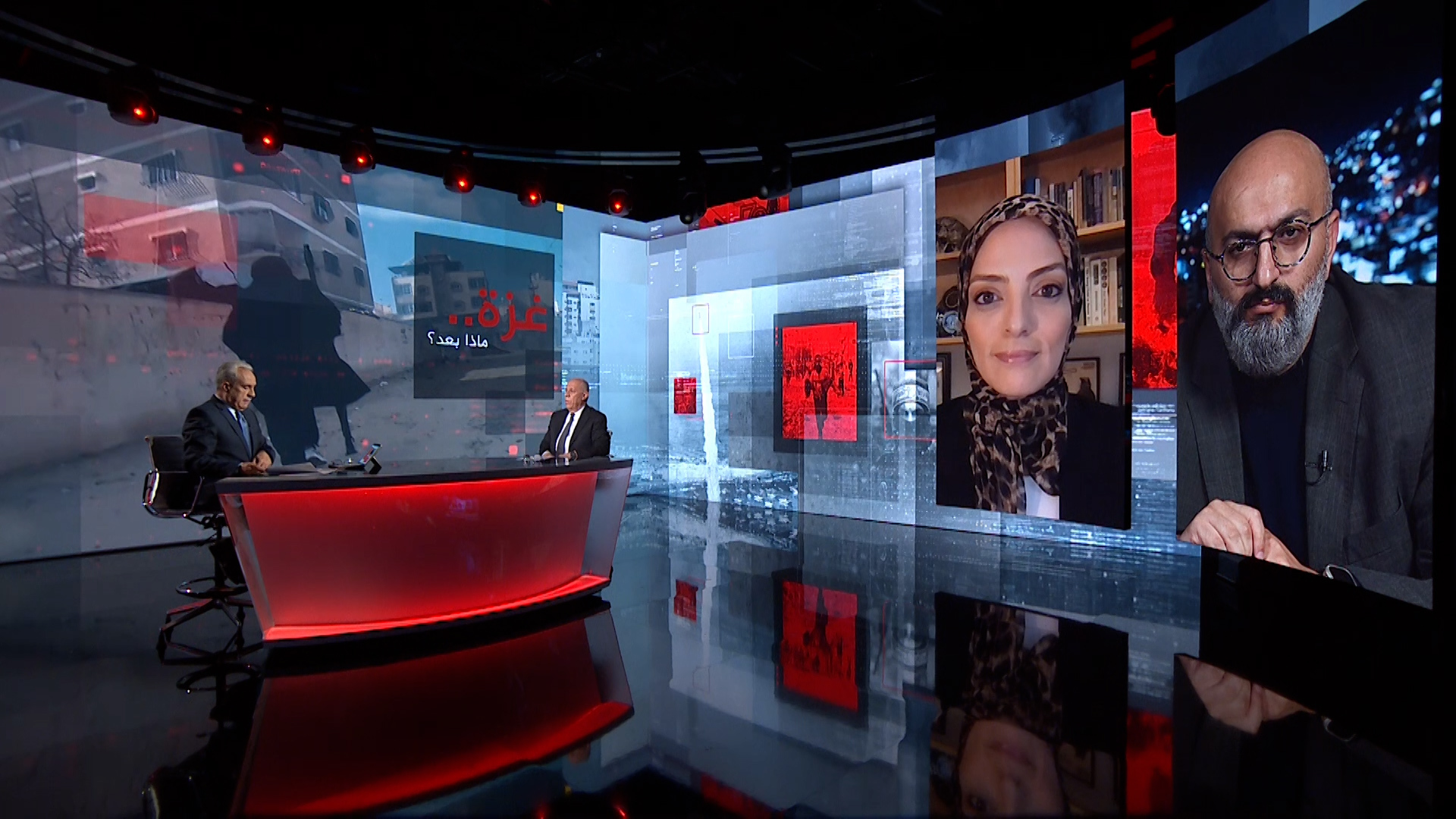play videoplay video
Video duration: 27 minutes 10 seconds 27:10
Experts and analysts say that the increasing Israeli talk about bringing military operations to the city of Rafah, south of the Gaza Strip, means a catastrophe for the displaced people in the region, stressing that the Egyptian position in particular, and the Arab position in general, regarding this crisis seems weak.
Major General Fayez Al-Duwairi said that talk is increasing about the existence of Israeli-Egyptian coordination regarding Rafah and the Philadelphia axis, while there is no clear Egyptian position on these talks.
During his participation in the program “Gaza... What Next?”, Al-Duwairi said that the arrival of the war in Rafah means a real disaster “because more than a million displaced people will have no place to go, especially since Egypt confirms its refusal to displace Gazans to its lands.”
Al-Duwairi spoke about the difficulty of resolving the battle of Khan Yunis until it is said that the displaced will return to it, pointing out that Israeli Defense Minister Yoav Galant’s talk about resolving matters in the city within a week contradicts the reality on the ground.
He explained that Khan Yunis contains the strongest brigades of the Al-Qassam Brigades - the military wing of the Islamic Resistance Movement (Hamas), and the fiercest brigades of the other factions, ruling out Israel extending its control over it within a week, as Gallant says.
False victory marketing
The same opinion was held by the expert in Israeli affairs, Ihab Jabareen, who said that Gallant’s talk about the imminent resolution of the Battle of Khan Yunis comes within the framework of attempts to market an unreal victory to the Israeli inside, which has been waiting for this victory every morning for 4 months.
In this context, Dalia Fahmy, a professor of political science at Long Island University, said that diverting the conversation to Rafah reflects the Israeli government’s feeling that Al-Shiraa is not satisfied with it, nor with the results of the military operation.
But this shift to Rafah - in Dalia's opinion - means that the strategic opportunities are diminishing for the Israeli government, and raises questions about the form of victory that Israel wants, and where the displaced can go.
From Ihab Jabareen’s point of view, this uncertainty reflects the lack of a plan by Israel, and he confirms that the war council continues to search for a victory that will save Prime Minister Benjamin Netanyahu and his army commanders.
In addition, Israel is also trying to achieve all the achievements that it failed to achieve even while occupying the Gaza Strip, especially with regard to tunnels, says Ihab, who believes that Israel is planning to occupy Rafah and Philadelphia, and annex them to the safe zone that it wants to create.
An ambiguous Egyptian position
However, according to Dalia, Israel’s entry into Rafah is largely dependent on the Egyptian position, “a position that seems very complicated because Cairo is not dealing in this battle in a clean manner,” as she put it.
She added, "Egypt received guarantees from US President Joe Biden that it will not participate in the displacement of the population, and at the same time it receives bribes to allow aid to pass ($7,000 per truck), even though what enters does not represent 10% of the needs, and it also obtains - Also - 7.5 thousand dollars from every individual who wishes to leave the Gaza Strip.
Dalia believes that Egypt's relationship with Israel and America is ambiguous, and that the Egyptian leadership must convey the popular rejection of displacement to other parties.
As for Al-Duwairi, he said that the Egyptian and Arab position in general is “a weak position unless it is a conspiracy,” adding, “If there had been a clear Arab position, what is happening would not have happened.”
Al-Duwairi pointed out that Egyptian President Abdel Fattah al-Sisi’s talk about the presence of obstacles on the Palestinian, not the Egyptian, side of the Rafah land crossing “contradicts the idea of Egyptian sovereignty,” he said.
Al-Duwairi added, "The crossing was opened against Israel's nose in 2012 (during the rule of the late President Mohamed Morsi), and members of the Egyptian government entered the heart of Gaza during the war."
In turn, Ihab concluded that Israel is trying to destroy all civilian infrastructure in the Gaza Strip; Because she realizes that this will be the only victory that can be achieved in this battle.
Source: Al Jazeera

